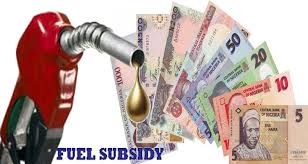
Fuel Subsidy: The Complex Issue That’s Holding Nigeria Back
By Chimaza Nonyerem-Okoronkwo
The removal of fuel subsidies has been a contentious issue in Nigeria, with proponents arguing that it will improve the economy and opponents claiming that it will lead to increased poverty and social unrest.
For me, both of these points of view are correct. To understand the implications of fuel subsidy removal, it is essential to define what subsidy is and its advantages and disadvantages.
Subsidies are financial aids provided by governments or public bodies to support industries, businesses, or individuals.
Subsidy payment is a global practice, governments around the world use subsidies to support various sectors of their economies and and the citizens as a whole.
In Nigeria, subsidy payment has been a controversial issue, particularly fuel subsidy under the administrations of former President Muhammadu Buhari and current administration of President Ahmed Bola Tinubu.
Initially, Buhari supported the fuel subsidy to keep fuel prices low for Nigerians. However, it became a significant drain on government finances, costing billions of dollars annually and contributing to budget deficits.
In 2021, Buhari signed the Petroleum Industry Act, which aimed to reform the oil and gas sector and phase out the fuel subsidy. However, he delayed the removal of the subsidy, citing potential social unrest and economic consequences.
Upon taking office in May 2023, President Tinubu announced the removal of the fuel subsidy as part of his broader economic reform agenda which was like waking a sleeping giant. The move led to immediate panic buying, long queues at petrol stations, and a sharp increase in fuel prices, affecting transportation costs and the prices of goods and services.
The controversy surrounding the fuel subsidy removal has sparked the recent protests tagged: “EndBadGovernace” and criticism from labour unions and the public, who argue that the removal was abrupt, ill-timed and lacked adequate planning to mitigate its impact on the populace.
The economic justification for the removal has been met with public backlash, concerns about the immediate impact on living costs, and a lack of transparency in how the saved funds after the removal would be utilized and believe me, those who were skeptical of this move are proved right as the federal allocations to the sub nationals have increased in figure but didn’t trickle down to those who needed it most.
In order to address the current situation, the government needs to take urgent steps to address the concerns of Nigerians and provide support to those who are most affected by the removal of fuel subsidies, not just short terms palliatives which doesn’t get to the right people at the right time. This could include measures such as providing subsidies for essential goods and services, and investing in social programs that benefit the poor and vulnerable.
Ultimately, the removal of fuel subsidies is a complex issue that requires careful consideration and planning. While the government may have had good intentions in removing subsidies, the implementation has been poorly handled, and the consequences are being felt by ordinary Nigerians.
It is important for the government to listen to the concerns of its citizens and take steps to address the hardship and frustration that the removal of fuel subsidies has caused.
This puzzle highlights the complex balance between economic reforms and social stability in our dear country. To move forward, it is essential to piece together the facts and forge a way ahead that addresses the concerns of all stakeholders and Nigerians as a whole.
Chimanza Nonyerem Okoronkwo, Life Camp, Abuja. [email protected]
